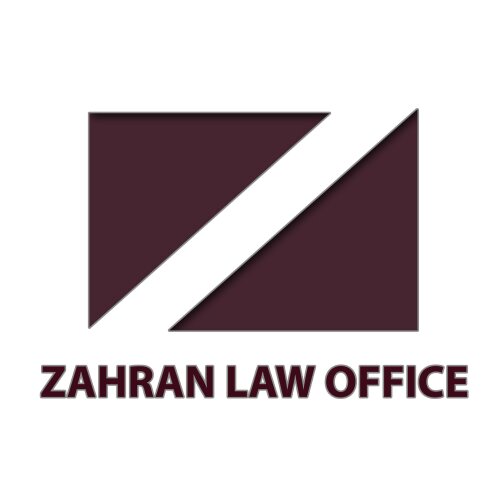Best Public-Private Partnerships (PPP) Lawyers in Egypt
Share your needs with us, get contacted by law firms.
Free. Takes 2 min.
Or refine your search by selecting a city:
List of the best lawyers in Egypt
About Public-Private Partnerships (PPP) Law in Egypt
Public-Private Partnerships (PPP) are arrangements where the government collaborates with private sector entities to finance, build, and operate projects that would traditionally be offered by the public sector. In Egypt, PPPs play a vital role in developing infrastructure and public services such as transportation, healthcare, water supply, and education. The cornerstone for PPPs in Egypt is the Public-Private Partnership Law No. 67 of 2010, along with its Executive Regulations. These legal frameworks establish the process, scope, and governance of PPP projects, promoting transparency and encouraging private sector investment in public infrastructure.
Why You May Need a Lawyer
Engaging in a PPP project in Egypt involves navigating complex laws, regulations, and contractual agreements. Some typical situations where legal advice is crucial include:
- Drafting, reviewing, and negotiating PPP contracts to protect your interests and ensure clarity
- Understanding your rights and obligations as an investor, contractor, or government entity
- Ensuring compliance with Egyptian laws and sector-specific regulations, which can be intricate
- Addressing disputes such as delays, payment, or performance issues during the project lifecycle
- Managing potential risks and liabilities associated with large-scale investments
- Participating in competitive bidding or tender processes for PPP projects
- Securing necessary governmental approvals, permits, or licenses related to the PPP
- Handling project finance structuring and security agreements
Local Laws Overview
PPPs in Egypt are primarily governed by Law No. 67 of 2010 on Public-Private Partnerships, which outlines the legal basis for project development, procurement, implementation, and operation. Key features of the local PPP legal framework include:
- Project Identification and Approval: Only projects approved and prioritized by the Ministry of Finance’s Central PPP Unit can be developed as PPPs.
- Transparent Tendering: Projects are typically awarded through competitive bidding, ensuring fairness and transparency.
- Contractual Framework: Standardized contracts outline the respective duties, risk allocations, payment mechanisms, and duration (usually between 5 and 30 years, renewable).
- Regulation of Tariffs and Payments: Payments, user fees, or subsidies are regulated to balance public interest and private investment returns.
- Dispute Resolution: Disputes are often resolved by arbitration, with the option to use domestic or international arbitration centers.
- Transfer of Assets: At the end of a PPP contract, assets typically revert to the state in good condition, unless otherwise agreed.
- Sectoral Regulations: Some sectors like energy, water, or transportation may impose additional legal or technical requirements.
Frequently Asked Questions
What types of projects are commonly developed under PPP arrangements in Egypt?
Common sectors include transportation (roads, bridges, ports), utilities (power plants, water treatment), healthcare facilities, education infrastructure, and waste management projects.
How are PPP projects selected in Egypt?
The government, through the Central PPP Unit of the Ministry of Finance, identifies and approves suitable projects based on public needs, economic benefit, and suitability for private sector involvement.
What is the usual duration of a PPP contract in Egypt?
PPP contracts in Egypt generally range from 5 to 30 years, depending on the project's nature, construction requirements, and operational needs. Extensions are possible by agreement.
Who is responsible for financing PPP projects?
Private partners usually provide most of the funding, with the government contributing in certain cases through subsidies, guarantees, or in-kind support.
Is it mandatory to have a local partner for PPP projects in Egypt?
While not always mandatory, local participation may be encouraged or required, especially for certain sectors or to fulfill localization and employment objectives.
How are disputes in PPP projects resolved?
Most PPP agreements in Egypt include arbitration clauses, allowing disputes to be resolved either through local courts or reputed arbitration centers, often in accordance with international rules.
What is the tendering process for PPP projects?
Generally, the process involves public announcement of the project, prequalification of bidders, submission of proposals, evaluation, negotiation, and award of the contract.
Are foreign companies allowed to participate in PPP projects?
Yes, foreign companies can participate, subject to fulfilling legal requirements. They may need to register a local entity or appoint a local agent, depending on the project.
What legal protections exist for investors in PPP projects?
Egyptian law provides certain guarantees, such as contract sanctity, rights to returns, compensation for expropriation, and clear dispute resolution mechanisms. Bilateral or multilateral investment treaties may offer additional protections.
How can risks be managed or allocated in PPP contracts?
Risks are typically allocated based on which party is best able to manage them, detailed in the contract. Typical risks include construction, demand, operational, financial, and political risks.
Additional Resources
The following organizations and governmental bodies provide information and support for PPP initiatives in Egypt:
- Central PPP Unit - Ministry of Finance
- General Authority for Investment and Free Zones (GAFI)
- Egyptian Ministry of Investment and International Cooperation
- Egyptian Bar Association
- Regional and international organizations such as the World Bank or International Finance Corporation, which have local offices and PPP advisory services
- Professional legal firms specializing in infrastructure and PPP transactions
Next Steps
If you are considering involvement in a PPP project in Egypt or need legal assistance, consider the following steps:
- Identify the nature and scope of your intended project or investment
- Consult with a qualified lawyer or legal firm specializing in PPPs and Egyptian infrastructure law
- Gather all necessary documentation, such as company registration papers, financial statements, and relevant permits
- Contact the Central PPP Unit to understand current opportunities and formal requirements
- Participate in information sessions or workshops hosted by governmental or international bodies
- Prepare for participation in public tenders or prequalification rounds
- Work closely with your legal advisor to draft or review contracts, assess risks, and ensure compliance at every stage
Lawzana helps you find the best lawyers and law firms in Egypt through a curated and pre-screened list of qualified legal professionals. Our platform offers rankings and detailed profiles of attorneys and law firms, allowing you to compare based on practice areas, including Public-Private Partnerships (PPP), experience, and client feedback.
Each profile includes a description of the firm's areas of practice, client reviews, team members and partners, year of establishment, spoken languages, office locations, contact information, social media presence, and any published articles or resources. Most firms on our platform speak English and are experienced in both local and international legal matters.
Get a quote from top-rated law firms in Egypt — quickly, securely, and without unnecessary hassle.
Disclaimer:
The information provided on this page is for general informational purposes only and does not constitute legal advice. While we strive to ensure the accuracy and relevance of the content, legal information may change over time, and interpretations of the law can vary. You should always consult with a qualified legal professional for advice specific to your situation.
We disclaim all liability for actions taken or not taken based on the content of this page. If you believe any information is incorrect or outdated, please contact us, and we will review and update it where appropriate.
Browse public-private partnerships (ppp) law firms by city in Egypt
Refine your search by selecting a city.
















